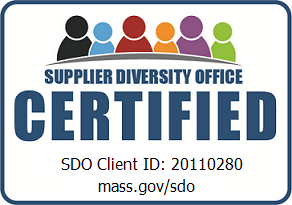With the digital age and the widespread use of social media, the way companies manage crises has dramatically evolved. Social media plays a central role in crisis management, offering opportunities and challenges. If your organization is dealing with a crisis, chances are social media is involved in one way or another.
While social media can be a powerful tool for providing necessary information in times of crisis, it can also inflame an already volatile situation. Sometimes, social media is the origin of the crisis itself.

The Role of Social Media in Crisis Management
Historically, crises were managed primarily through traditional media outlets like TV, radio, and newspapers (and often, they still are). However, social media has fundamentally changed the landscape of crisis communication. Social media platforms like X, Facebook, Instagram, LinkedIn, TikTok, and others have become the go-to channels for information and discussion during a crisis. These platforms help amplify the speed and reach of information, making them both powerful tools and potential threats in crisis management.
Because of the fast-paced nature of social media, information (or misinformation) can spread like wildfire. If you act promptly and accordingly, you can often address the spread internally and externally. If you don’t, your organization might find itself in an even deeper crisis. At the same time, responding too quickly—without gathering all the facts first—can make the situation worse.
Speed & Reach
Social media allows real-time communication with audiences across the globe. During a crisis, people often turn to social media for the latest updates, making it essential for organizations to maintain a presence on these platforms. Missteps in timing or poor communication can further damage an organization’s reputation.
Public Perception
Social media gives the public a voice, and they will likely share their opinions on a situation through posts, comments, or hashtags. If an organization is not proactive in managing the narrative, it risks losing control of how the situation is perceived. A company’s reputation can change rapidly based on social media reactions.
Transparency & Authenticity
Social media requires brands to be transparent and authentic in their communication. When handling a crisis, businesses must provide real-time updates, acknowledge mistakes if necessary, and offer solutions or apologies when appropriate. A failure to do so may lead to losing trust among customers and the public.
Monitoring & Engagement
Social media enables companies to track public sentiment and monitor the ongoing developments of a crisis. By engaging with followers, companies can address concerns, clarify, and ensure their message is understood correctly. Ignoring social media conversations can lead to the spread of misinformation or rumors, which can be more damaging than the original crisis.
9 Social Media Crisis Management Tips for Organizations
When a crisis strikes, handling social media interactions carefully and strategically is essential. Here are some key social media crisis management tips to ensure a smoother response.
1. Get the Facts First
In the throes of an emerging crisis, you will likely feel the urge to respond as quickly as possible to control the narrative. But before doing so, you must make sure you have gathered all the facts. Nothing inflames a situation faster than an emotional response that isn’t based in fact or doesn’t take stock of the situation in its entirety.
Assessing the facts of the situation before responding means ensuring your communications and senior leadership teams are looped into the unfolding situation and are comfortable with your planned course of action.
If the crisis is pressing and your organization does not communicate in a timely fashion with your stakeholders, rumors or false narratives may go unchecked and begin to spread. Don’t get caught flat-footed: Ensure your messaging is accurate, finalize your communications plan, and work quickly to get your statement out.
2. Respond Quickly
In the age of social media, crises can spiral out of control quickly. Therefore, a rapid response is essential. Acknowledge the situation publicly within a reasonable timeframe to show that you are aware and taking it seriously. Delays in addressing the issue can lead to confusion, and public opinion may spiral negatively without an official response.
3. Stay Calm & Professional
Emotions can run high during a crisis, both inside the organization and externally. However, it’s important to remain calm and maintain professionalism on social media. Avoid knee-jerk reactions or hasty statements that could make the situation worse. Take the time to craft thoughtful, clear, and factual messages.
4. Be Transparent
Transparency is key during a crisis. Admit when things have gone wrong (to the extent you can), provide the facts, and let your audience know what steps you are taking to address the situation. Openness builds trust and shows that the organization is actively working to resolve the issue.
5. Monitor Social Media Channels
Social media monitoring plays a vital role in helping identify warning signs and potential issues before they become full-blown crises. Regularly monitoring social media platforms allows you to detect emerging trends, identify possible concerns, and take proactive measures, such as drafting strategic holding statements and other communications materials.
Use social media monitoring tools to track mentions of your brand, identify trending hashtags, and measure public sentiment. You can react appropriately and address concerns promptly by actively listening to what people say.
Flag and discuss what you’re seeing with your team and senior leaders to ensure they are aware of potential issues in real time. That way, if a crisis does occur, you are prepared and aren’t playing catch-up. The farther you are ahead of an issue, the easier it will be to navigate.
6. Limit the Spread of Misinformation
Misinformation can spread quickly on social media, so it’s essential to act as a source of accurate information. Correct any false information as soon as possible and provide clarification as needed. Create official channels, such as dedicated crisis pages or official social media accounts, where people can get updates.
Remember that one of the biggest challenges in addressing a situation on social media is the comment section, which gives people a forum to instantly discuss and criticize your message, spread misinformation, and argue with each other. The last thing you want to do is create a public dialogue on the issue on your social media page for all the world to see.
7. Keep Messaging Consistent
When multiple team members manage social media during a crisis, it’s crucial to ensure consistent messaging across platforms. Create a central repository for key messages and a unified approach to responses so that different team members don’t contradict each other or confuse your audience.
8. Empathize with Your Audience
Show empathy and understanding for those affected by the crisis. Whether the crisis involves customers, employees, or the public, acknowledge its impact on them and offer support. Empathy can go a long way in diffusing tension and demonstrating that you care about the people affected by the situation.
9. Treat Social Media as a Two-Way Street
A positive aspect of social media is that it enables easy communication between organizations and the public. People can ask questions, express concerns, and receive answers and reassurance directly. Social media also allows you to provide real-time updates, which keep the public informed and are especially helpful in emergencies.
Determine if and when to respond to individual posts and comments, and ensure your message is consistent across social channels and aligned with your organization’s overall message.
Need Help Creating a Social Media Crisis Management Plan? Contact The Castle Group
Social media plays an indispensable role in crisis management. From the speed of response to the transparency required in handling public concerns, organizations must navigate social media carefully to avoid exacerbating the crisis. A well-planned social media crisis communications strategy can help protect a brand’s reputation and minimize the negative impact of a crisis.
Contact us today to get help creating a social media crisis communications plan, or contact our crisis communications team to learn more.




















